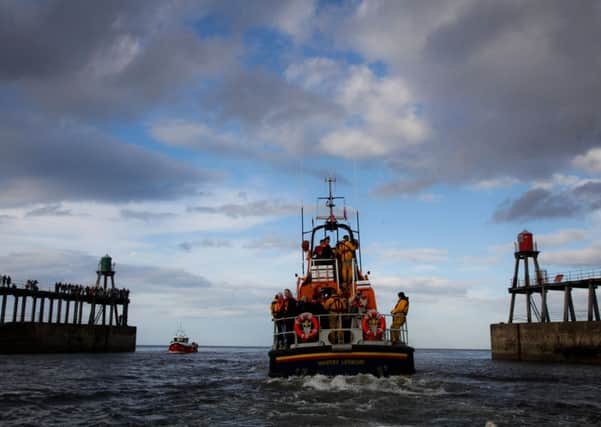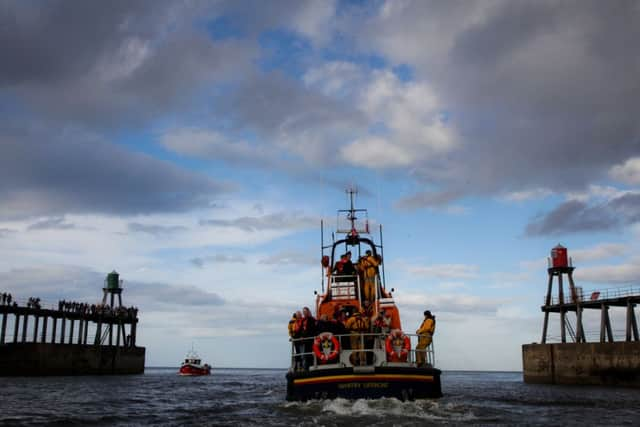Whitby disaster is marked with service


On board the boats led by the Whitby RNLI all-weather lifeboat George and Mary Webb were descendents of those who died in the disaster a hundred years ago including Steven Kirk, who now lives in Australia, who came to pay his respects to his great grandfather George Kirk, a general hand on the Rohilla whose body was never found. Also on board were RNLI volunteers recalling the bravery of the lifeboat charity’s crews who saved 144 lives during the three-day rescue which saw them stretched to the limits of their endurance.
Mr Kirk, who lives in Perth, said: “Even though I never knew George and his incredible story wasn’t one I learned about until fairly recently, I felt it was important to be here to pay my respects to him and all the other people who died on the Rohilla.
Advertisement
Hide AdAdvertisement
Hide Ad“Its been very touching, quite emotional really,” Mr Kirk said.


His great grandfather, who was born in Dumfries and later moved to Glasgow was among the crew, surgeons, St John Ambulance staff and nurses who were on board bound for Dunkirk preparing to bring wounded soldiers back home when a quarter of a mile off Whitby’s coast they found themselves in need of help themselves. Of the 229 people on board the Rohilla, 85 lost their lives.
Among them were 15 members of St John Ambulance from Barnoldswick. Twelve of them lost their lives and Peter Thompson, came along to lay a wreathe and remember them on behalf of Barnoldswick Town Council and the local community.
“It had a terrible effect, it was an awful lot of people to loose in a single day,” Mr Thompson said of the impact of the losses in his community.
Advertisement
Hide AdAdvertisement
Hide AdThere was a short service of remembrance on board the lifeboat, transmitted by loud speaker to the other boats, before the wreaths were lowered into the sea above the wreck on Saturday to mark the 100th anniversary of the disaster on October 30 1914. Payers were said and the Rohilla’s ship bell, salvaged from the wreck, rang out while a period of silence was observed.
Alongside the flotilla was the restored rowing lifeboat William Riley, which 100 years ago was lowered down a cliff on ropes in an attempt to reach the 7,400 ton Rohilla. Earlier in the day the William Riley gave a rowing and rescue demonstration for the large assembled crowds who gathered to watch the anniversary celebrations.
Whitby RNLI volunteer museum curator Peter Thomson MBE, coxswain on board the William Riley on Saturday, said: “Fortunately, the weather was kind to us – we have had very different conditions to those experienced 100 years ago.”
Revd Canon David Smith, rector of Whitby, said the disaster had made a big impact on the people of Whitby which locals offering survivors hot tea, blankets and shelter in their homes.
Yesterday there was a service of remembrance at St Mary’s Church, Whitby led by the Bishop of Whitby, Paul Ferguson.